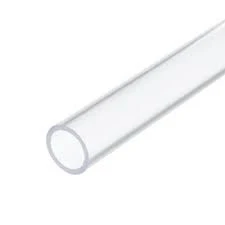Th11 . 01, 2024 09:15 Back to list
High-Quality PVC Plastic Sheet Rolls for Versatile Applications and Customization
Understanding PVC Plastic Sheet Rolls
PVC, or Polyvinyl Chloride, is one of the most widely used synthetic plastic polymers in the world. Among its many forms, PVC plastic sheet rolls have gained substantial popularity across various industries. These versatile sheets are available in a variety of thicknesses, colors, and finishes, making them suitable for an array of applications ranging from construction to crafts.
One of the primary reasons for the popularity of PVC plastic sheet rolls is their durability. PVC is known for its resistance to moisture, chemicals, and UV radiation. This resilience makes it an excellent choice for outdoor uses, such as signage, garden decorations, and protective coverings. The sheets maintain their integrity in various weather conditions, preventing warping or degradation over time, which is vital for long-term projects.
Understanding PVC Plastic Sheet Rolls
In terms of safety, PVC sheets are generally non-toxic, but it's important to note that they must be handled and disposed of properly. When heated or burned, PVC can release harmful chemicals, which highlights the importance of following safety guidelines during their use. Therefore, it’s crucial for manufacturers and users alike to be educated on the best practices for the handling of PVC products.
pvc plastic sheet roll

The applications of PVC plastic sheet rolls extend into many sectors. In the construction industry, they are often utilized for window frames, roofing membranes, and insulation materials. In the healthcare sector, they can be found in medical equipment, protective clothing, and sterilization barriers due to their easy-to-clean surfaces. Additionally, in the educational sector, PVC sheets are employed for display boards, educational aids, and craft projects.
Cost-effectiveness is another significant factor that draws consumers to PVC plastic sheet rolls. Compared to other materials, such as acrylic or polycarbonate, PVC is often less expensive while providing similar benefits in terms of durability and versatility. This affordability makes it accessible to both hobbyists and large industries looking to manage production costs.
Finally, the environmental impact of PVC is a subject of ongoing discussion. Modern advancements are being made to recycle PVC material, thereby reducing waste and promoting sustainability. By supporting PVC recycling initiatives, consumers can contribute to a more circular economy, ensuring that these materials can be reused rather than ending up in landfills.
In conclusion, PVC plastic sheet rolls are an invaluable resource for many industries and DIY enthusiasts. Their durability, ease of fabrication, safety, and cost-effectiveness make them a preferred choice for countless applications. With ongoing developments in sustainability practices, the future of PVC usage seems bright as we strive to balance innovation with environmental responsibility. Whether for construction, crafting, or commercial use, PVC plastic sheet rolls are undoubtedly a material of choice in today's diverse marketplace.
-
PVC Transparent Sheet Roll - Durable & Flexible PVC Plastic Sheet Roll for Industrial & Home Use
NewsJun.24,2025
-
High-Quality PVC PPR Pipes and Fittings Durable ERA PPR Solutions
NewsJun.10,2025
-
High-Quality Large HDPE Sheets & Large Diameter PVC Pipe Durable Large PVC Pipe Supplier
NewsJun.10,2025
-
High Density Polyethylene Cutting Board - Durable & Food Safe
NewsJun.09,2025
-
3 Inch PVC Pipe for Durable Irrigation Affordable & Reliable
NewsJun.09,2025
-
Premium PPR Plastic Water Pipe Fittings - Durable & Leak-Free
NewsJun.09,2025

